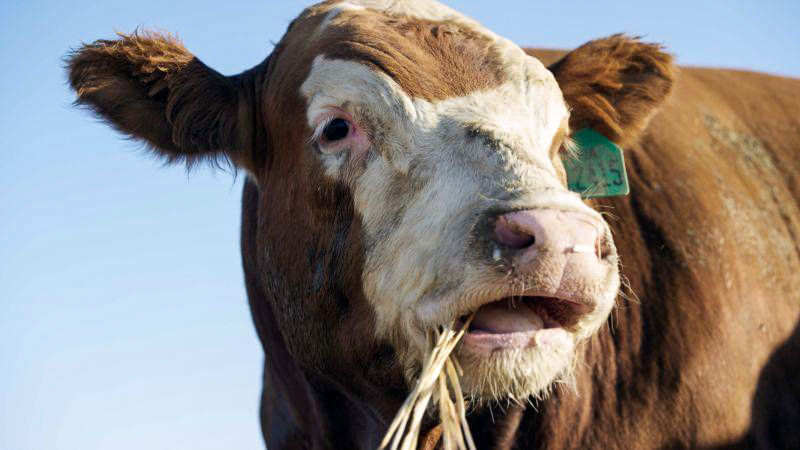Vyvlecka is an agricultural communications & journalism sophomore. Eppright is an agribusiness sophomore. Both students have grown up around beef cattle production and are students in the College of Agriculture & Life Sciences.
To the editor,
RE: “Steak and the greater good: Confronting the harsh realities of beef production”
What if we lived in a world where changing one thing fixed all of our problems — one diet or one extra dollar? Unfortunately, there is no one simple solution to fixing the challenges we face with climate change, human health and economics.
Recently, some researchers, as well as the media, have disproportionately and unfairly isolated beef production as problematic for global sustainability due to flawed studies and well-publicized misconceptions. Growing up in agriculture with cattle of our own, our experiences have compelled us to provide perspective on this complex topic. As science-based advocates for beef production, we feel it is critical to look at beef research and evaluate beef’s role in a healthy, sustainable diet.
Unlike pork, poultry and fish, cattle’s ruminant digestive system allows them to upcycle plant and forage nutrients of low value. This material, which is indigestible to humans, is then turned into a high-quality source of human-edible protein. Ninety percent of what cattle eat is inedible to humans. The remaining 10 percent of human-edible protein fed to cows can potentially transform into 4.60 units of human-edible protein back for consumers. This conversion of protein makes beef one of the most economically efficient sources of protein. In other words, more protein for the money.
More high-quality, nutritious food for less environmental impact is the goal. When it comes to sustainability, the United States leads the world with cattle’s carbon footprint being 10 to 50 times lower than other regions of the world. Today, we produce equal amounts of beef with one-third fewer cattle than needed in the 1970s. This is much improved, and we aren’t slowing down.
Few foods offer nutrition and taste as great as beef, and no other protein provides as many essential nutrients at such few calories. A 3-ounce serving of lean beef can supply your body with 25 grams of protein and 10 essential nutrients such as zinc, iron and B vitamins. With beef being such a vital part of a healthy diet, consumers should continue to eat it within the recommended global dietary guidelines.
Beef is sustainable, nourishing, and plays a unique role in the food chain. Ruminant animals are the only livestock that can take solar energy in forage and convert it into high-quality protein for human consumption. Cattle play a significant role in the ecosystem by upcycling plant material all while producing more with fewer resources. Global environmental concerns are complex and cannot be oversimplified with one solution. Fortunately, beef will help combat these problems by continuing to increase sustainability with advancements in cattle genetics, nutrition and production practices.
Letter to the editor: Time to beef up our beef facts
November 19, 2019
0
Donate to The Battalion
$2065
$5000
Contributed
Our Goal
Your donation will support the student journalists of Texas A&M University - College Station. Your contribution will allow us to purchase equipment and cover our annual website hosting costs, in addition to paying freelance staffers for their work, travel costs for coverage and more!
More to Discover















